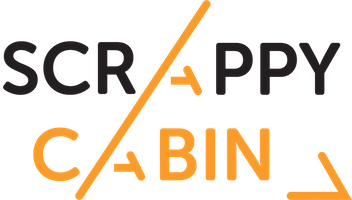This study aimed to develop a model for how teachers can better facilitate learning
Wilma S. Reyes, Teresita T. Rungduin, Adonis P. David and Elanor O. Bayten
Philippine Normal University, Philippines
This study aimed to develop a model for how teachers can better facilitate learning by economically disadvantaged or low income students. Grounded on the contextual, personal, and relational dimensions of the academic experience of financially-challenged teacher education students, this study designed and developed a model of pedagogical strategies that are better for meeting these students' needs. With the central question “How can we better facilitate the learning of students living in poverty?”, a series of focus-group discussions was conducted with a select group of university faculty with experience in teaching low income college students. Findings from the content analysis identified six core pedagogical strategies. These findings shaped the design of the context-sensitive and responsive model of pedagogical strategies for low income students. Implications of the model for teachers, educators and governments are outlined.
Introduction
Poverty is defined as “the state of one who lacks usual or socially acceptable amount of money or material possessions” (Kanbur & Squire, 2002, p.3). The literature on poverty suggests that it has an effect on education. For example, it has been reported that poverty has a negative association with academic achievement due to the limited resources available to low income students (Lacour & Tissington, 2011).
Likewise, it has been reported that children from poorer households are more likely to delay the start of their education and are also most likely to drop out before completing their education (United Nations, 2013). In view of the Philippine government’s goal of alleviating poverty through education, this study aimed to develop a model of innovative pedagogical strategies in addressing the needs of learners living in poverty. The pedagogical model was grounded on the experiences and encounters of economically disadvantaged students as they pursue their education. When a pedagogical approach or strategy is grounded from the actual experiences of the students, it will address their actual needs.
Literature review
Studies on marginalised students have been conducted to support the development of pedagogy for low income students (Haberman, 1991); provide social innovations aimed at improving educational outcomes for poor children (Barbarin & Aikens, 2015); and call attention to the need to address the country's rapid population growth, since there is a strong link between economic performance, on the one hand, and economic growth and poverty reduction, on the other (Balisacan, 2006). In the Philippines, there has been a number of research and advocacy done in seeking for ways to address poverty issues (Balisacan & Pernia, 2002; Balisacan, 2006).
Specifically, formulations for policy improvement were provided to address how schools should address concerns in providing for the needs of low income students; minimising education inequality between students and regions in the Philippines (Mesa, 2007); and improving poor governance of officials (Hine, Montiel, Cooksey & Lewko, 2005). Moreover, investigations concerning the psychological experiences of people who see themselves as being poor (Tuason, 2011); and relationships between social dominance orientation and attitudes towards poor people (Bernardo, 2013) were undertaken to document how poverty is viewed from different lenses.
In higher education, Philippine universities currently have an enrolment of almost 3 million students (Commission on Higher Education, 2017b) in both state and private universities. A total of 1.3 million students are enrolled in government-funded universities (Commission on Higher Education, 2017a) who are enjoying free tuition because of the recently passed bill (Republic Act 10931) providing senior high school graduates the opportunity for free education (Republic of the Philippines, 2017). Latest Jobs in pakistan
When enrolled, students are given the opportunity to apply for student financial assistance programs (e.g. full and partial scholarships for students in both private and government-funded universities). However, the scholarships are limited to a selected few, so not all qualified students are able to avail (Halili, 2014). This leads to difficulties during their higher education due to financial hardships, despite being provided with free tuition. College students who have difficulty making ends meet financially often work in part-time jobs inside and outside the university, and find these additional task to be sources of stress (Robotham & Julian, 2006).

Poverty is perceived to be resulting from personal and socio-cultural factors (Tuason, 2011) with personal factors attributed to lack of educational opportunities, as well as personality factors pertaining to lack of motivation, and socio-cultural factors emphasising government corruption and work availability. Philippine data show that the identified causes of poverty are the following: inequality, lack of quality education, lack of jobs, corruption, natural calamities and overpopulation (Uy & Pua, n.d.).
Causes of being poor were perceived to be addressed by highlighting the importance of education, infrastructure, terms of trade, agrarian reform, governance, and certain geographic attributes (Balisacan & Pernia, 2002). Schooling, if accompanied by complementary public investments, raises the welfare of the poor, apart from its indirect effect through economic growth. It has also been reported that younger and college educated individuals are more likely to view their living conditions as transient compared to older and elementary educated individuals (Generalao, 2005).
